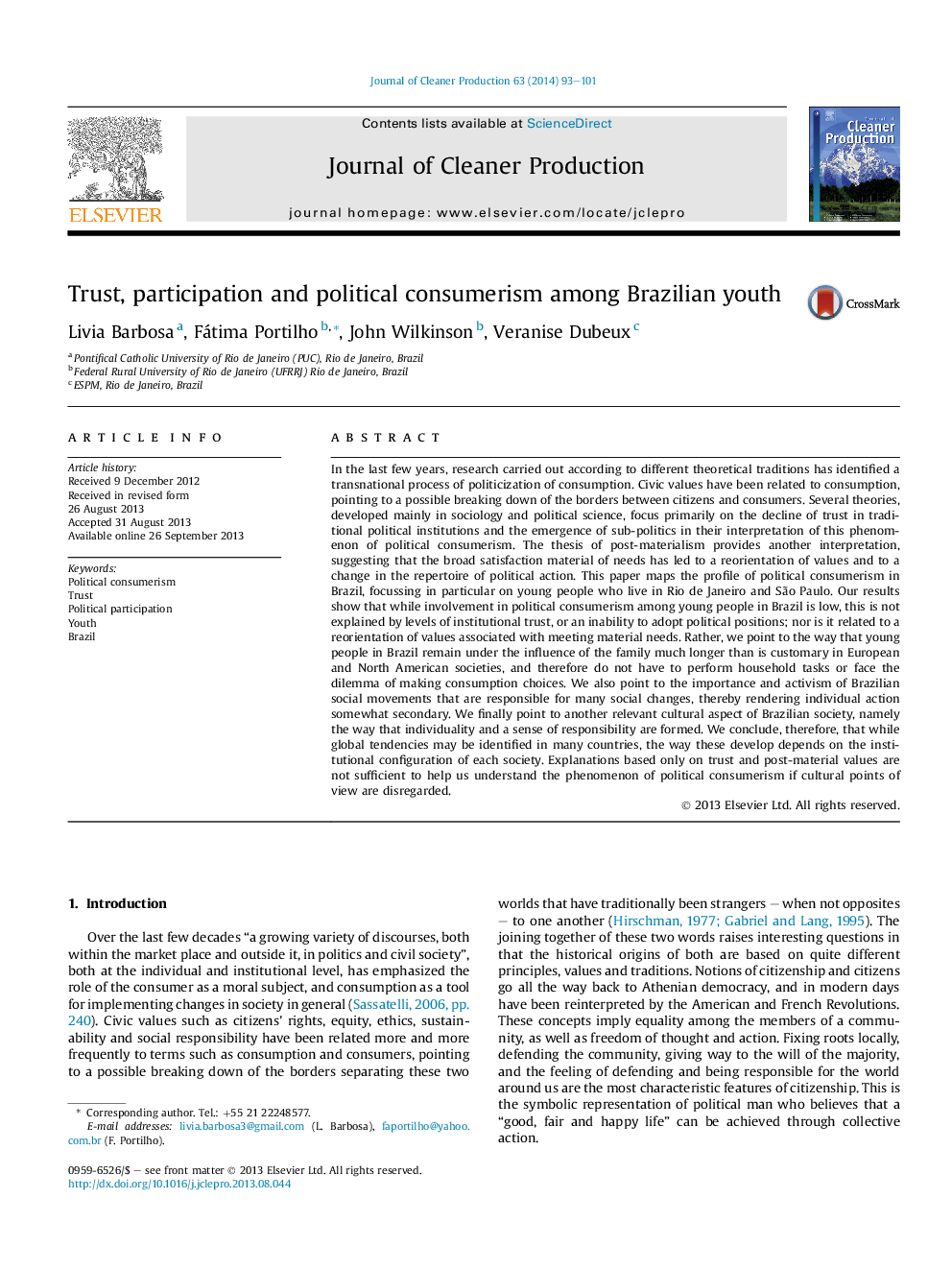| کد مقاله | کد نشریه | سال انتشار | مقاله انگلیسی | نسخه تمام متن |
|---|---|---|---|---|
| 1745102 | 1522183 | 2014 | 9 صفحه PDF | دانلود رایگان |
In the last few years, research carried out according to different theoretical traditions has identified a transnational process of politicization of consumption. Civic values have been related to consumption, pointing to a possible breaking down of the borders between citizens and consumers. Several theories, developed mainly in sociology and political science, focus primarily on the decline of trust in traditional political institutions and the emergence of sub-politics in their interpretation of this phenomenon of political consumerism. The thesis of post-materialism provides another interpretation, suggesting that the broad satisfaction material of needs has led to a reorientation of values and to a change in the repertoire of political action. This paper maps the profile of political consumerism in Brazil, focussing in particular on young people who live in Rio de Janeiro and São Paulo. Our results show that while involvement in political consumerism among young people in Brazil is low, this is not explained by levels of institutional trust, or an inability to adopt political positions; nor is it related to a reorientation of values associated with meeting material needs. Rather, we point to the way that young people in Brazil remain under the influence of the family much longer than is customary in European and North American societies, and therefore do not have to perform household tasks or face the dilemma of making consumption choices. We also point to the importance and activism of Brazilian social movements that are responsible for many social changes, thereby rendering individual action somewhat secondary. We finally point to another relevant cultural aspect of Brazilian society, namely the way that individuality and a sense of responsibility are formed. We conclude, therefore, that while global tendencies may be identified in many countries, the way these develop depends on the institutional configuration of each society. Explanations based only on trust and post-material values are not sufficient to help us understand the phenomenon of political consumerism if cultural points of view are disregarded.
Journal: Journal of Cleaner Production - Volume 63, 15 January 2014, Pages 93–101
